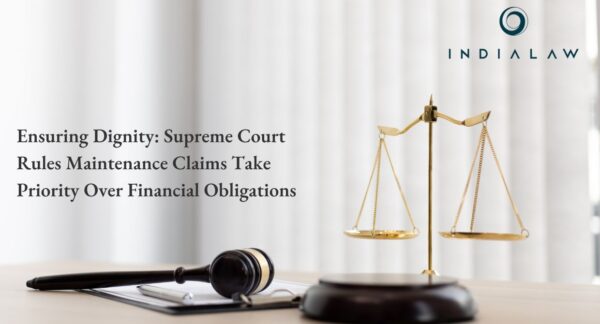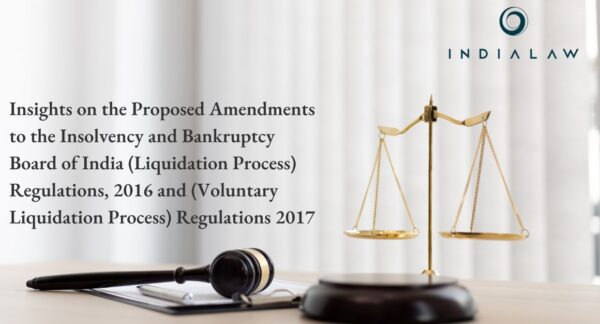Decoding the Supreme Court Judgment on Stamping and Registration of Sale Certificates: Legal Insights and Implications


In a landmark ruling, the Supreme Court in State of Punjab & Anr. vs M/s Ferrous Alloy Forgings P Ltd. & Ors. (2024 INSC 890) clarified the legal status of sale certificates issued during court-ordered auctions. The judgment resolves longstanding uncertainties about the mandatory requirements for stamp duty and registration of sale certificates under Indian law. Here’s a detailed analysis of the judgment, focusing on the legal provisions cited, judicial precedents quoted, and its broader implications.
Table of Contents
Background of the Case
The case involved the auction sale of properties belonging to M/s Punjab United Forge Limited, a company under liquidation under provisions of the Companies At, 1956. M/s Ferrous Alloy Forgings Pvt. Ltd., the auction purchaser, faced disputes regarding the issuance of a sale certificate and the applicability of stamp duty. The High Court had ruled in favour of the purchaser, directing the issuance of the sale certificate and refund of deposited stamp duty. The State of Punjab appealed against this decision.
Key Legal Issues
- Stamp Duty on Sale Certificates:
- Whether a successful auction purchaser must deposit stamp duty before the sale certificate is issued.
- High Court’s Jurisdiction:
- Whether the High Court’s intervention under Article 226 of the Constitution was justified despite the availability of alternative remedies.
Supreme Court’s Findings
Judicial Precedents Quoted in the Judgment
- Municipal Corporation of Delhi v. Pramod Kumar Gupta (AIR 1991 SC 401):
- The Court observed that the title to auctioned property vests with the purchaser upon confirmation of sale under Order XXI, Rule 92 of the CPC.
- A sale certificate issued under Rule 94 is merely a formal declaration and does not create or extinguish title, thus not attracting stamp duty applicable to conveyance deeds.
- Smt. Shanti Devi L. Singh v. Tax Recovery Officer (AIR 1991 SC 1880):
- The Court ruled that sale certificates issued under court orders are not compulsorily registrable under Section 17(2)(xii) of the Registration Act, and non-registration does not affect the transfer of title.
- B. Arvind Kumar v. Government of India (2007) 5 SCC 745:
- It was held that upon confirmation of an auction sale, the sale becomes absolute, and the sale certificate serves as evidence of title.
- No further deed of transfer or registration is required for the auction purchaser to derive title.
- M/s Esjaypee Impex Private Limited v. Canara Bank (2021) 11 SCC 537:
- The judgment emphasized that under Section 89(4) of the Registration Act, a sale certificate filed with the Sub-Registrar suffices for compliance with registration requirements.
- Inspector General of Registration v. G. Madhurambal (2022 SCC Online SC 2079):
- The Court reiterated that sale certificates are not conveyances subject to stamp duty and that filing under Section 89(4) of the Registration Act serves the same purpose as registration.
Legal Provisions Referred to in the Judgment
- Registration Act, 1908:
- Section 17(2)(xii): Exempts sale certificates issued pursuant to auction sales from compulsory registration.
- Section 89(4): Mandates that a copy of the sale certificate issued by an authorized officer must be forwarded to the Sub-Registrar for filing in Book I.
- Stamp Act:
- Articles 18 and 23 of the First Schedule: Specify the conditions under which stamp duty is applicable on sale certificates when presented for registration or other legal purposes.
- Code of Civil Procedure, 1908:
- Order XXI, Rule 92: Confirms the sale upon the disposal of objections, transferring title to the purchaser.
- Order XXI, Rule 94: Governs the issuance of sale certificates as evidence of title transfer following confirmation of sale.
- Constitution of India, Article 226:
- Grants High Courts the power to issue writs in cases requiring judicial intervention, even when alternative remedies exist.
Nature of Sale Certificates
- The sale certificate is not a conveyance deed and does not transfer title; it merely evidences the title already vested in the purchaser upon confirmation of the sale.
- Registration is not mandatory under Section 17(2)(xii) of the Registration Act.
- Stamp duty applies only if the sale certificate is presented for registration or other uses.
High Court’s Writ Jurisdiction
- The Supreme Court upheld the High Court’s exercise of writ jurisdiction, emphasizing that an alternate remedy does not bar judicial review in cases requiring urgent intervention.
Stamp Duty Liability
- The purchaser is responsible for paying stamp duty when necessary, but non-payment should not delay the issuance of the sale certificate.
Judgment
The Court dismissed the State of Punjab’s appeal, reaffirming that:
- Sale certificates issued under court-ordered auctions are evidence of title and do not create or extinguish rights.
- These certificates are exempt from mandatory registration under the Registration Act.
Conclusion
This ruling by the Supreme Court establishes a crucial precedent for auction sales under judicial and statutory frameworks. By highlighting the interplay of the Registration Act, Stamp Act, Code of Civil Procedure, and key judicial precedents, the Court has simplified procedural complexities for auction purchasers while ensuring compliance with existing laws. This judgment is a significant step toward a transparent and efficient asset recovery process, benefiting stakeholders across India’s financial ecosystem.





Leave a Reply
You must be logged in to post a comment.